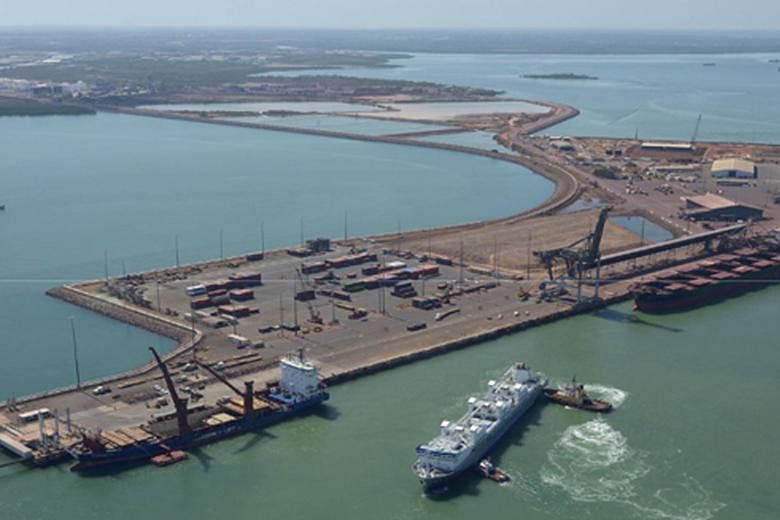Australia faces growing pressure over a controversial plan to lease the port in the northern city of Darwin to a Chinese company which has ties to China's military.
United States officials have expressed concern about the A$506 million (S$512 million) agreement by the Northern Territory government to lease the port to the privately owned Landbridge Group. The port is close to a base through which US Marines have been rotating for the past three years.
The deal, announced last month, has also prompted calls for Australia to tighten its reviews of foreign investments, especially by privately owned Chinese firms that may have close links to China's government or military.
Several prominent US analysts have criticised the deal, including former deputy secretary of state Richard Armitage, who said he was "stunned" that Canberra had failed to discuss it with Washington.
The deal was apparently not raised by Australia during annual ministerial talks in Boston last month.
"I couldn't believe the Australian defence ministry went along with this," Mr Armitage told The Australian Financial Review.
"And I was further stunned to find out that apparently this did not come up in the A-US talks (Australia-United States Ministerial Consultations)… We've got Marines and exercises nearby."
Another analyst, Dr Andrew Krepinevich, an adviser to the US chief of naval operations and the US army's special operations command, said the deal undermined US policy in the region and was "short-sighted at best".
"At worst, it threatens to undermine Australia's relations with its closest security partner, the US, at a time when the latter is finally beginning to put serious effort behind its pivot to the Asia-Pacific," he wrote in The Australian newspaper on Tuesday.
"Thanks to its strategic location where the Indian and Pacific oceans meet, and lying securely outside the range of most Chinese missiles, Darwin stands to be the southern anchor of this effort to convince Beijing that its interests are better served through cooperation rather than intimidation."
Dr Krepinevich added: "Advocates of the deal assert that Darwin is a commercial port, not a naval base. The same might be said of Singapore."
However, Australia's military has said that it has no security concerns about the 99-year lease.
Defence Department Secretary Dennis Richardson told a parliamentary committee last month that the deal had been checked by the Australian Signals Directorate - the Defence's security agency - and strategic experts.
"I note that it is a commercial port; it is not a naval base," he said. "When we were… advised that the sale was to Chinese interests, we examined the possible security implications. No part of Defence had a concern from a security perspective in respect of the sale."
Mr Richardson said the Australian navy had access but was not concerned about ownership because it was a port rather than a base.
However, former senior Defence official Peter Jennings, executive director of the Australian Strategic Policy Institute, has warned that China could potentially use the port for "espionage or sabotage".
The opposition Labor Party may call for a parliamentary inquiry to consider the deal, increasing pressure on the government to tighten the way it examines the impact of large-scale foreign investment on security.
This follows claims in the media and by analysts about links between Landbridge and the Chinese military.
In particular, analysts cited Chinese media reports that Landbridge has established armed militia units in the port city of Rizhao to support the military in case of a war or national emergency.
However, Landbridge dismissed the claims about the company's military links. "Landbridge Group is not a state-owned enterprise," it said in a statement. "It is a private company owned by the Ye Family. Mr Ye (Cheng) has never been in the military or the People's Liberation Army."
Analysts said Landbridge had complied with Australian law and that a full assessment by Australia's Foreign Investment Review Board was not required because the company was privately owned.
They also said the lease did not involve a purchase of assets worth more than A$252 million - the amount which triggers a review.

